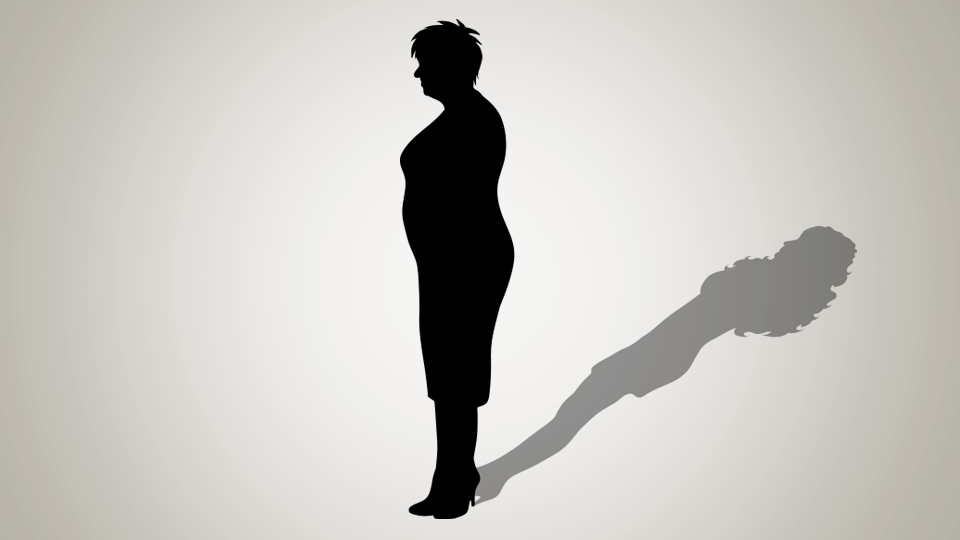Recently I had a zoom session with presenters and editors of a radio station in Bulgaria which kicked off with a round of introductions. “I feel conscious of being the oldest amongst us”, a very eloquent and warm woman presenter opened her introduction apologetically. Her self-critical remark seemed misplaced, not least because she looked neither younger nor older than anyone else in the room, but it was clear that her age occupied significant space in her mind. I felt saddened by her apparent impulse to apologise for her “advanced” age. Then I encountered yet again the biggest, most unfair and ruthless ageist, who resides… in my own head. “I am definitely the oldest”, I thought to myself with regret.
Few things make you feel the impact of ageing as acutely as having been attractive in your youth. The turn-around-to-glance-at-you factor is a privilege that you only appreciate once you’ve lost it. And you really miss it. You want it back. You want it back badly because it was flattering to your ego, it gave you a sense of power and, you realise, your looks made your life more fun.
I feel lucky. None of the loved ones around me is being ageist towards me. My husband still finds me attractive and my sons, who rarely, if ever, think about me outside of the context of being fed, praised or reprimanded, cannot even remember my age. Age is not something they waste their time thinking about from the self-regarding pedestal of their seemingly eternal youth.
Whenever I lament how poorly I compare to some middle-aged woman looking fit and gorgeous on TV, my husband brushes away my dejection, insisting that she is paid to look exceptionally well and therefore spends hours of every day working hard to look like that. Fair point. It does make me feel better and hopeful that if I put in the work one day, I too would be blessed with a similar outcome. While I know this ain’t gonna happen, I do find myself soothed by the possibility.
But the ageist in my head is relentless. The backchat is frequent and exhausting. It examines my arms for sagging; my face for new lines; my hair for thinning; my body for weight stored in new places such as my tummy or my butt, my neck or my cheeks. Does this sound familiar? Every time I see a celebrity on social media who’s had plastic surgery, my ageist asks me impatiently when I will tackle those wicked lines on my face.
Having written a whole chapter on ageism in From Outrage to Opportunity, I know only too well the gulf of structural disadvantage that ageing opens up for women compared to men. The authority and expertise an ageing man carries are priceless, but carried by an ageing woman, they are devalued, being worth less or indeed worthless. So I worry about ageing becoming a hurdle in my writing career (Bonnie Garmus, whose best-selling debut Lessons in Chemistry I have just finished reading, cheers me up in that respect. She was in her sixties when she wrote it).
Ageism is deeply socialised. Only last week Jennifer Anniston shared her frustration with the warped complement she often receives that she looks well “for her age”. We regularly read about 40s being the new 30s, 50s the new 40s, 60s the new 50s. We are keeping the multibillion plastic surgery and cosmetic product industries flourishing to look younger.
“Beauty at any age is beautiful” says Anniston but the ageist in my head is not convinced. It was raised by both my parents and soaked up the prevalent anti-aging social norms. Society taught me to hang my identity on my looks and to dampen down my intellect “as men find it off-putting”. There is an old Bulgarian saying that is used far and wide. It translates as something like: “old age - unhappy age”. My dad ran with it and somewhat gave up living fully once he hit his mid-fifties and after my mother died. “I am too old to do this”, is a phrase he used frequently about all sorts of activities he denied himself - exercising, using a smartphone, keeping a journal…
There are two broad ways we tend to react to the anxious ageist inside: we either try to hold onto/bring back our youth or we re-pivot our identity onto our inner nature rather than our exterior (or both). For now, I have chosen to re-pivot. What about you?
I am strangely grateful to my inner ageist, coupled with my fear of meaningless mortality, for shoving me into a midlife crisis that forced me to uncover my deeper inner passions and to unhook them from the grip of my appearance. So when I feel saddened by my gradually withering shell, I write.
If you recognise yourself in my writing, I encourage you to introduce yourself to your own ageist. They are inside of you, but they are not you. Once the two of you have had an honest chat, consider parting ways and re-pivoting away from focusing on your exterior (without abandoning physical exercise and healthy eating!)
We must choose our battles. Preventing ageing is not one any of us can win. Finding and expressing our unique passions, sharing our inner nature with our loved ones, friends, and the wider world is within our gift. Even if you can’t feel it yet, the world is ready to discover the deeper you.






